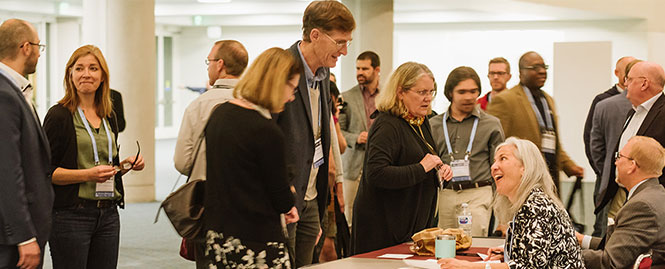Hebrews and the Pauline Tradition
Sponsors: Madison Pierce and Bryan Dyer
The Hebrews and Pauline Tradition Research Group will not meet this year.
Active Groups
About Research Groups
IBR Research Groups gather communities of scholars around particular research interests for at least three years. Though we encourage members to commit to one group, visitors are always welcome. • Learn more
Become a Member

IBR members receive BBR along with year-round publisher discounts and are able to convene Research Groups.
Join IBR
Unscripted

IBR Unscripted presents exciting research in an engaging, no-manuscript format (like a TED talk).
Learn More
